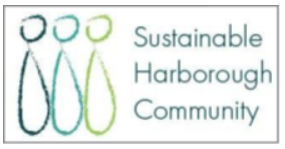The Dolphin and Us

On holiday recently with family at Portwrinkle, on the south coast of Cornwall, I saw a dolphin washed up on the beach. On closer inspection, I noticed strong string wound several times round its back fin and a wooden label on the string, but the address washed off.
Had this caused the dolphin to die unable to navigate and come up for air? It was a very distressing sight.
Where had the string come from? Even worse than individuals dropping their rubbish in the sea are the massive floating fishing factories in the oceans.
Their lines can be as long as 100 km – about 62 miles – with hundreds of sharp hooks and bait. And it is causing massive overfishing as well as the loss of species. (greenpeace.org.uk/news/industrial-fishing-sharks-confiscated-gear). If you don’t have access to the internet, our wonderful community libraries can find this for you.
The good news is that the recently announced United Nations Global Ocean Treaty. (bbc.co.uk/news/science-environment-64815782) is a huge step in the right direction when the world governments who have agreed this, bring it into law in their own countries, including ours.
Hopefully it will protect 30% of the world’s oceans by 2030 when ratified and there are various campaigning groups round the world working legally to help too.
An example is the Marine Conservation Institute in the USA especially concerned about the future of seamounts (large volcanoes) on the deep ocean floor, areas of extensive biodiversity of fish and sea creatures. marine-conservation.org/californias-seamounts/
Another group – Fish Act – active in Europe and the UK, is raising awareness about the destructive effects of so much over-fishing with 90% of fish stocks depleted or on the point of collapse and 40% of these catches thrown back into the sea as’ bycatch,’ an innocuous word with deadly outcomes. See https://fishact.org/
We can play our part by eating sustainably managed and caught fish – see mcsuk.org/goodfishguide/
In the meantime, it’s too late for that poor dolphin but hopefully better times are ahead for these beautiful mammals.
Julie Fagan, volunteer, Sustainable Harborough Community and Eco Church.




 Glenfields Optical Pearl
Glenfields Optical Pearl

